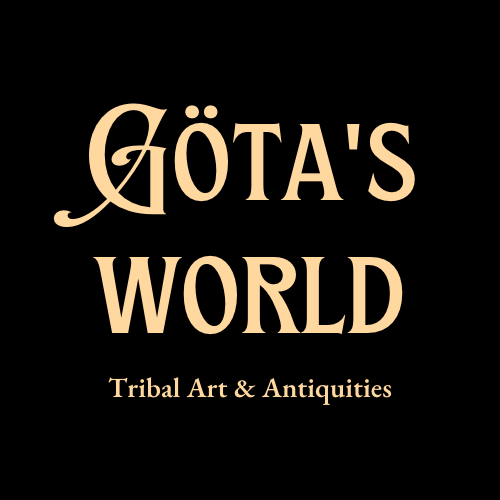Dani Tree Bark Fibre Skirt (Yokal)
Dani Tree Bark Fibre Skirt (Yokal)
Couldn't load pickup availability
Dani People, Mid-20th Century, Bailem Valley, Irian Jaya, Papua, Indonesia
A beautiful and finely made yokal—a traditional Dani women’s skirt crafted from delicately spun and hand-knotted tree bark fibre. The strands are tightly woven into a narrow band, from which dense cords fall in soft, rhythmic lines, enriched with a reddish brown natural pigment. Worn wrapped around the hips and secured by tying, such skirts were an essential garment for married women and a key marker of status, identity, and maturity within Dani society.
The Dani of the central highlands of Western New Guinea form one of the region’s largest and most culturally distinctive groups, together with related communities such as the Yali, Moni, and Lani. Isolated in the fertile Bailem Valley until the mid-20th century, the Dani lived a traditional agrarian and foraging lifestyle, sustained by stone, bone, wood, and fibre tools prior to the arrival of metal implements in the 1960s.
Deeply animist, the Dani worldview revolves around land and water spirits and the restless souls of the newly deceased. Great care was taken to guide these spirits—mogat—so they would not linger and bring misfortune. Social life was richly expressive, with adornments made from rattan, feathers, cowries, pig tusks, and intricately crafted fibre objects. Women’s attire, from grass skirts (sili) to coil skirts (yokal), reflected age, marital status, and cultural identity.
The creation of bark-fibre textiles required extensive skill: suitable plant material was harvested, heated over fire, soaked, stripped, dried, and twisted into a strong, flexible cord, sometimes dyed with natural pigments. The resulting fibre was then knotted or woven into garments, bags, and ceremonial items—a time-intensive process mastered only through long practice.
This elegant yokal is an exceptional example of Dani fibre artistry—both a functional garment and a culturally resonant expression of womanhood, craftsmanship, and traditional highland life.
Very good condition. Expected age-related wear with beautifully preserved fibre texture and colour. Size approx. 38,0cm x 73,0cm.
Provenance: Dutch private collection. According to information, originally from the collections of a closed ethnographic museum & foundation in the Netherlands.
For a similar example see:
Skirt, Pace, Stichting Papua Erfgoed, Accession Number: EA/57/4 (https://www.papuaerfgoed.org/en/EA/57/4)
References and further reading:
Encyclopedia of World Cultures, Oceania, Karl Heider, edited Terence Hays, G.K.Hall & Company, 1991.
Wealth Items in the Western Highlands of West Papua, Anton Ploeg, Ethnology, Vol.43. No.4 (Autumn 2004), pp. 291-313.
Papua blood: An account of West Papua, Peter Bang, BoD, 16 Apr 2018.
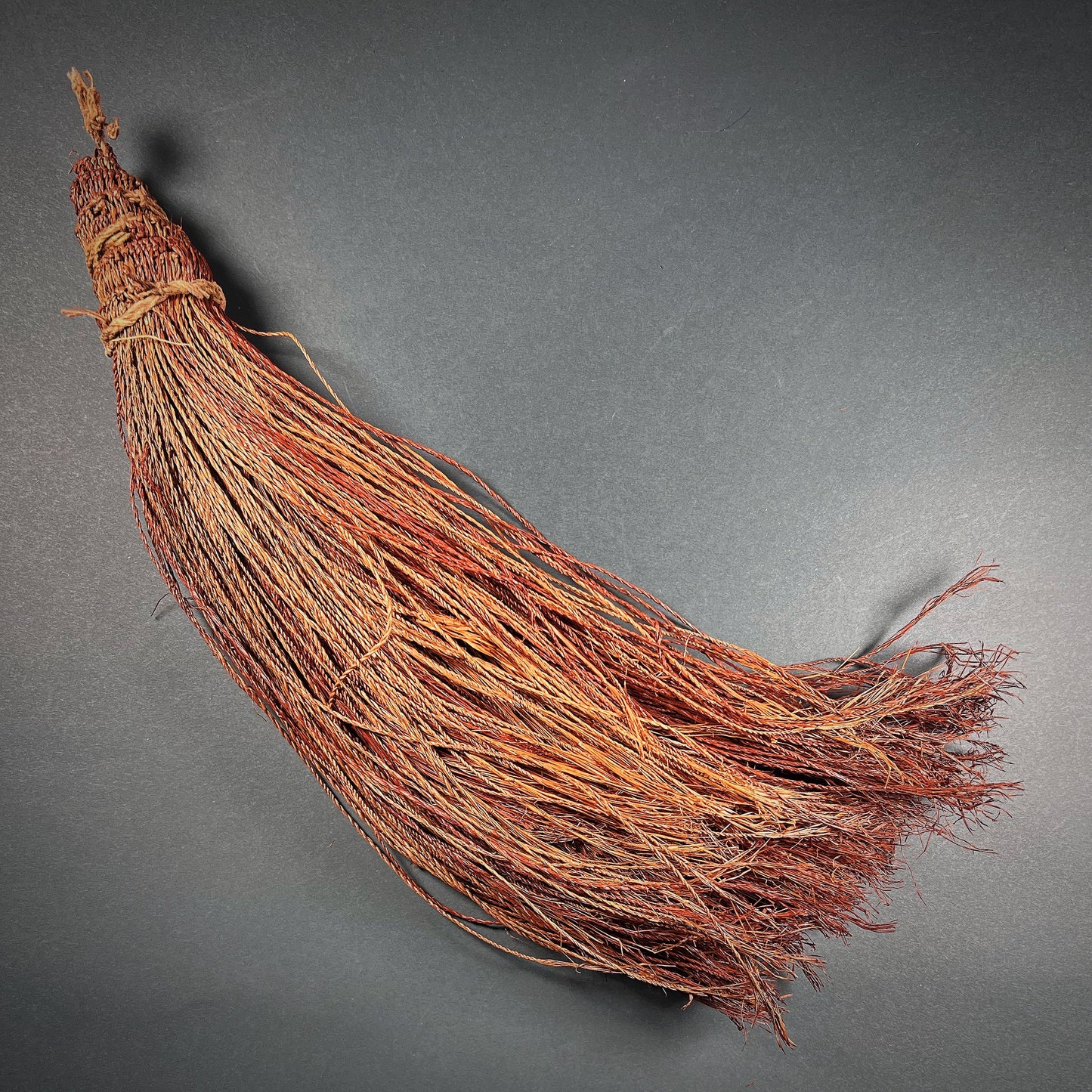
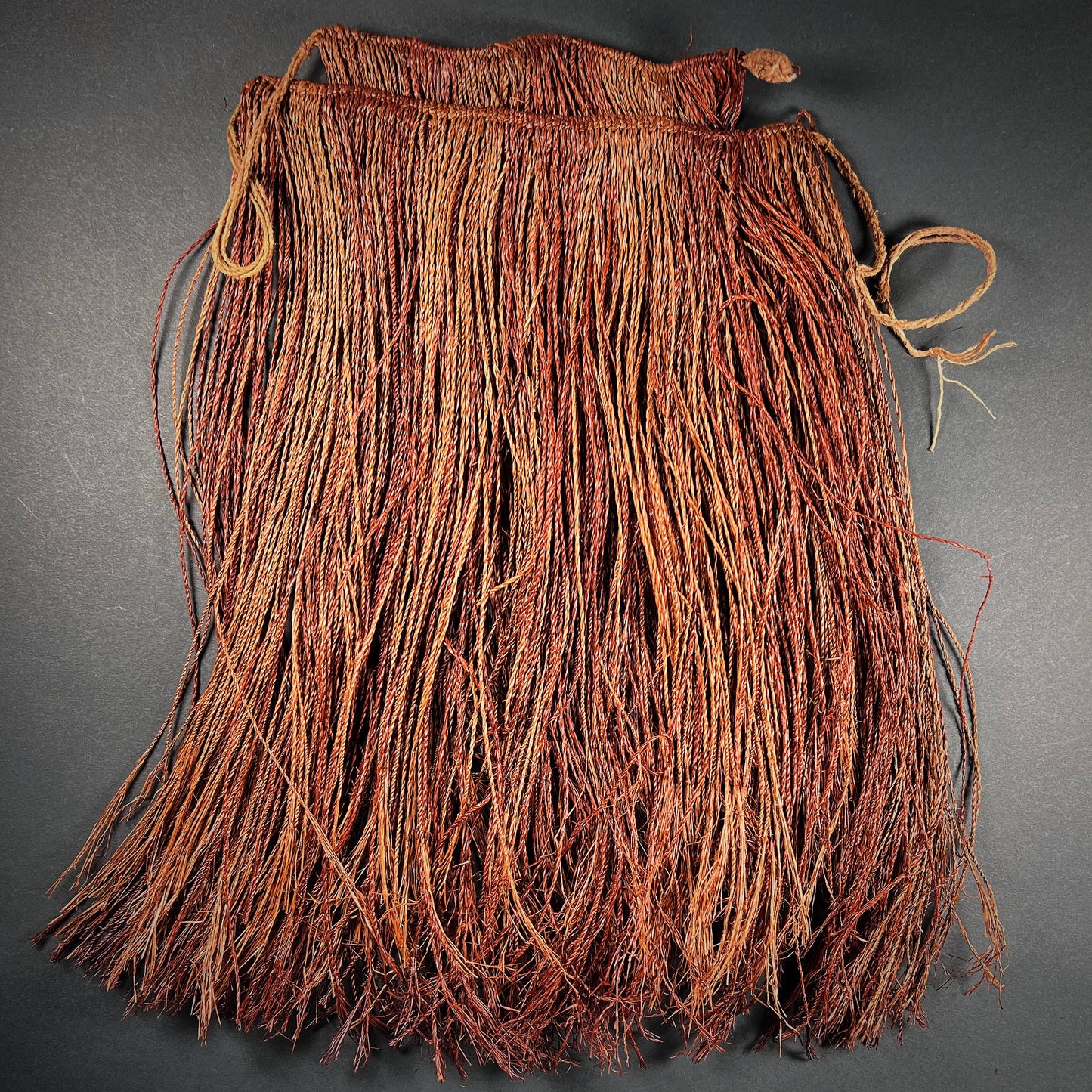
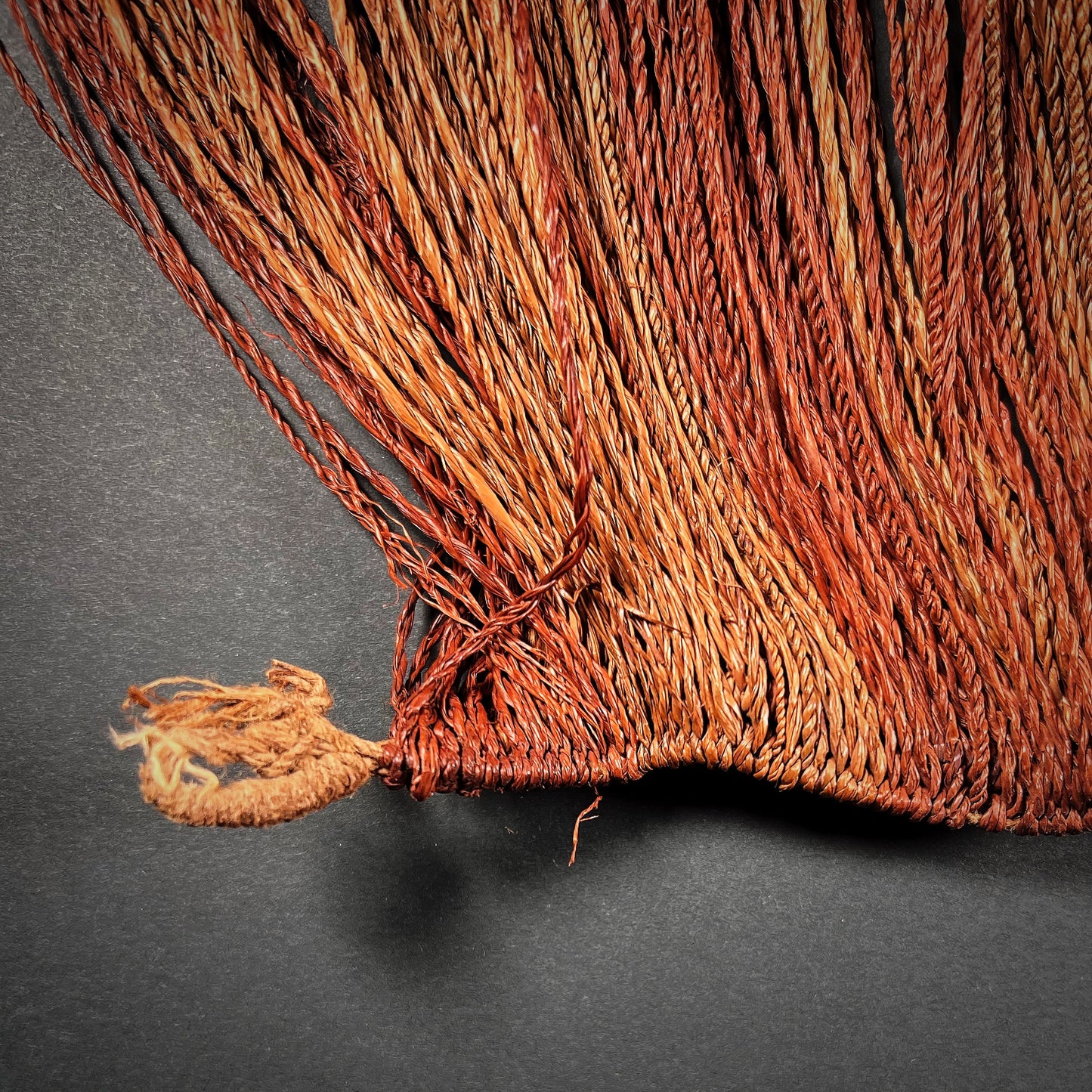
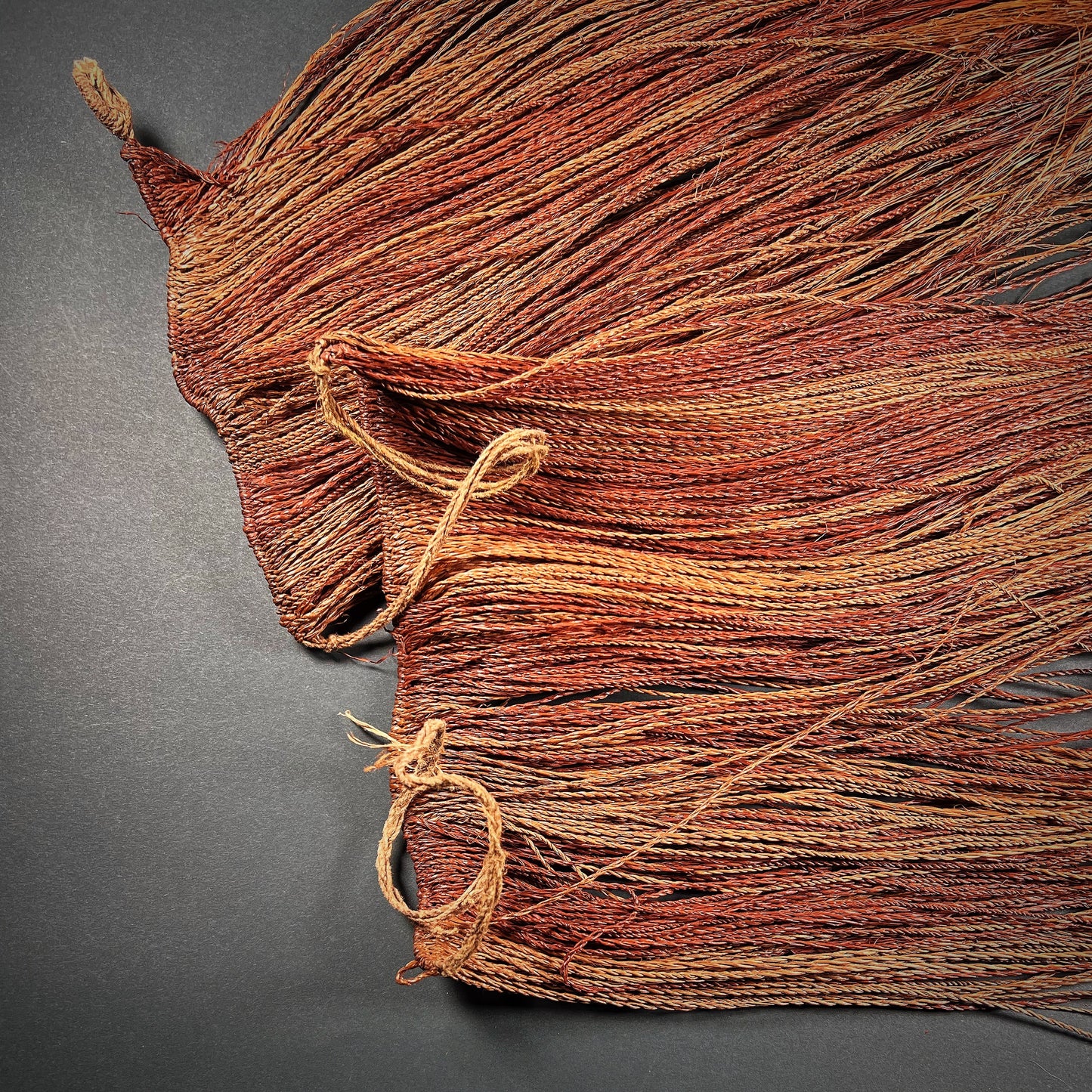
-
Shipping
The shipment will be prepared in the course of 3-5 days and dispatched via Posti Group Oyj or purchased item(s) can be picked up from our shop during the store's opening hours (Tarkk’ampujankatu 4, 00140, Helsinki, Finland). Within the Finland, all items are shipped via Posti Group Oyj unless otherwise requested. We pack the items carefully and mainly in recycled materials because we want to save nature. You will receive the tracking number for your items by e-mail.
-
Returns
Returns and exchange will be accepted within fourteen days (14) of receipt at the purchaser’s cost to include freight and packaging. Items must be returned in the same condition as when they were shipped, and will not be accepted if damaged or altered in any way. Please inform us via email (info@gotanmaailma.fi) or by calling +358408408352 before sending. We do not accept returns more than 14 days after delivery.
